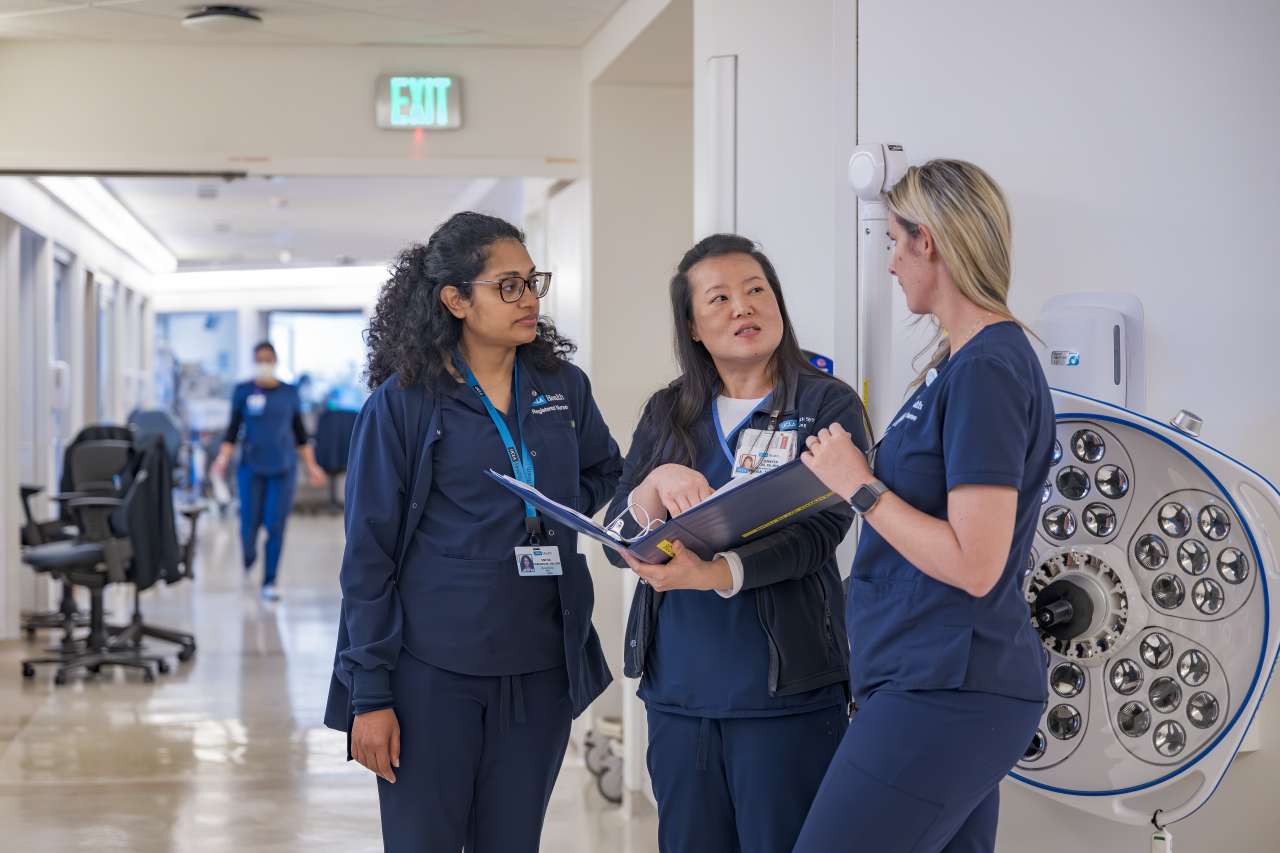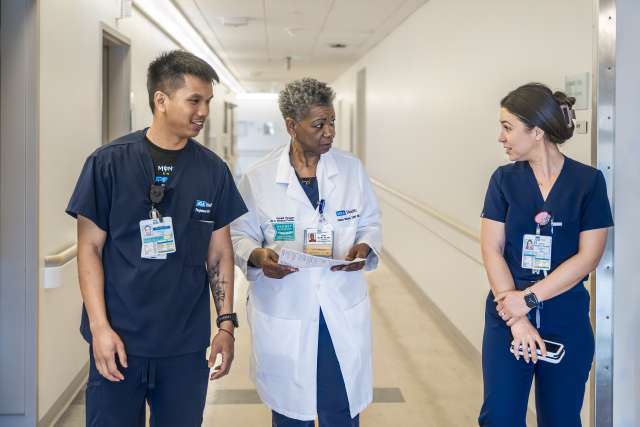The role of the frontline manager — responsible for the everyday operation of the unit, scheduling staff, budgeting and ensuring nurses are trained in the latest procedures and that patients are safe — is often considered the most challenging in nursing. They have 24/7 responsibility for their unit, which means they frequently get called on weekends, and even in the middle of the night. Frontline managers are also innovative, creative, supportive, caring and compassionate problem-solvers who put the needs of the patients first. On top of working sometimes 50 or more hours a week, frontline managers must navigate the complex needs of their staff, which requires them to wear many hats, including leader, listener, coach, counselor, mentor and, often, mediator.
“I consider unit directors to be the unsung heroes of health care,” says Coleen Wilson, DNP, RN, NEA-BC, senior director of adult in-patient nursing. “During COVID-19, they were the ones who were coming up with ways for us to do things safely, as well as consistently sharing best-practices among students and staff. They focused on staffing and on the health and well-being of their teams, and they worked nonstop. And that wasn’t just through COVID; they’re doing that now.”
“Complex and complicated” is how Grace Mayne, DNP, RN, NE-BC, RN-BC, a unit director in 6N, a neurosurgical stroke and general neurology unit, describes her job. “We have 24-hour accountability for the unit,” she says. “Whatever it is, we’re the last line of defense for everything.”

Post-COVID challenges
Jennifer Do, MSN, RN, NP, is unit director of the transplant/surgical ICU, where she’s worked since 2005. She says balancing the importance of keeping her staff happy while at the same time being operationally responsible and ensuring that patients receive the care they need, is her biggest challenge. “Since the pandemic, the perspective of what staff request versus what we think we can provide has really shifted,” she says. “And we have to think about ways to provide for them so they feel they have the well-being to be able to provide for patients, and also that they feel they have the work-life balance, where their cup is full, so they can share that cup with somebody else.”
Do says that during the pandemic, she and other managers often neglected their own well-being for the sake of their units, which has had long-lasting emotional impacts. “We were go, go, go,” she says. “We focused on surviving and making sure to carry everybody through, and we didn’t reflect on those things or have any downtime for ourselves.”
Still, Do finds the rewards of the job outweigh the challenges. “When I see people who I mentored or helped to go beyond whatever they wanted to be, it makes me happy,” she says. “I feel that I achieved my goal of helping to make the best nurses to represent UCLA Nursing out in the world.”
Assessing the impact
An Institutional Review Board-approved study is currently being developed to assess the impact of implementing four 10-hour days, versus the traditional five eight-hour days, on the health and well-being of frontline managers. Launching in Fall 2024, the study aims to quantify the workload of frontline managers, explore the potential benefits of a four-day workweek in reducing stress-induced physiological issues and enhance work-life balance while maintaining quality patient care.
Two groups will be involved in the study: a control group working the current five-day-a-week schedules and an intervention group working four 10-hour days. “I think what will be very telling is how much work these unit directors actually do,” Dr. Wilson says. “If you were to ask them how many hours a week they work, I guarantee that it is well over 60. And some of them work even more than that.”
The study will measure physiological biomarkers such as sleep cycles and heart rates. It will also look at patient-outcome metrics, says Anthony Chan, MSN, RN, NE-BC, senior director of acute care nursing units. “We’re hoping this will be a potential recruitment piece because work-life balance is something that resonates throughout the whole field of nursing,” Chan says. “We know that lots of our managers are on the heavier workload side, so we’re hoping that this four-day workweek will help them to feel that they have that balance in life.”


